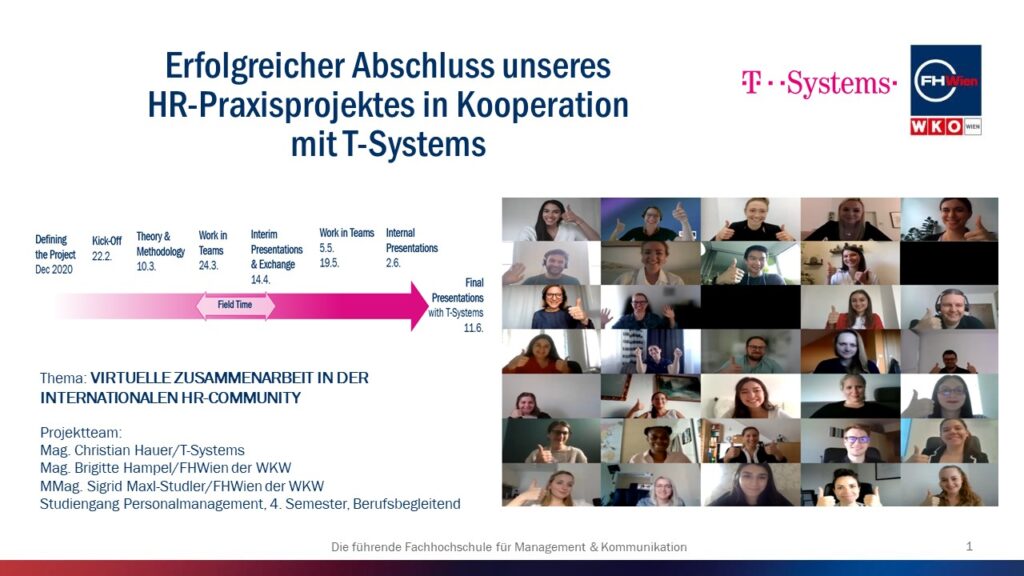How can virtual collaboration succeed across different time zones and cultures? Bachelor’s students presented ideas to project initiator Christian Hauer and other representatives from T-Systems as part of this year’s HR practical project.
Work in internationally operating companies was already characterized by virtual collaboration before COVID-19 broke out. However, the elimination of joint meetings has made work even more “digital” – across national borders, in different time zones and cultures.
This initial situation led to this year’s HR practical project in the Bachelor’s degree program in Human Resources Management in cooperation with T-Systems, one of the world’s leading providers of digital services. The goal was to develop a concept for virtual collaboration in the international HR community for T-Systems that would support HR managers at T-Systems in cooperation and collaboration in their daily work. The fourth semester students approached this topic with a great deal of commitment, and at the same time were themselves in the situation of having to handle team collaboration purely virtually.
With the help of qualitative interviews, it was possible to gain a picture of the mood of internal representatives at T-Systems and to compare this with interview results from an external perspective, from representatives of other internationally active companies. The additional literature research and a creative process led to tangible recommendations for action in the areas of organization, tools and team building. In the course of the final presentations to company representatives from T-Systems, a particularly appreciative and lively exchange followed on the impulses presented.
Key aspects of virtual collaboration included defined meeting rules, regular breaks and small talk windows, for example, even before the meeting starts. The number of tools used should not exceed 6; the use of these tools must also be trained in advance – for example, by means of online tutorials, training sessions or courses. During the meetings, the focus should be on interaction; areas such as “digital nudging” and “gamification”. Last but not least, it is important to welcome new team members through targeted onboarding activities and to strengthen interpersonal interaction with the help of virtual events.
“I can definitely recommend the cooperation between the company and the University of Applied Sciences as part of a practical project. The students did an excellent job in terms of content. The project results serve us as a location assessment but also as concrete recommendations that we will implement in our global, virtual reality. I would particularly like to emphasize the high quality of the presentations – it’s great to see the level of work being done here at the FHWien. I was also impressed by the professionalism with which the leaders of the practical project guided, coached and motivated the students through the process.” Christian Hauer, Head of International HR at T-Systems International, summed up the experience. A big thank you at this point for the exciting topic and the valuable cooperation!
